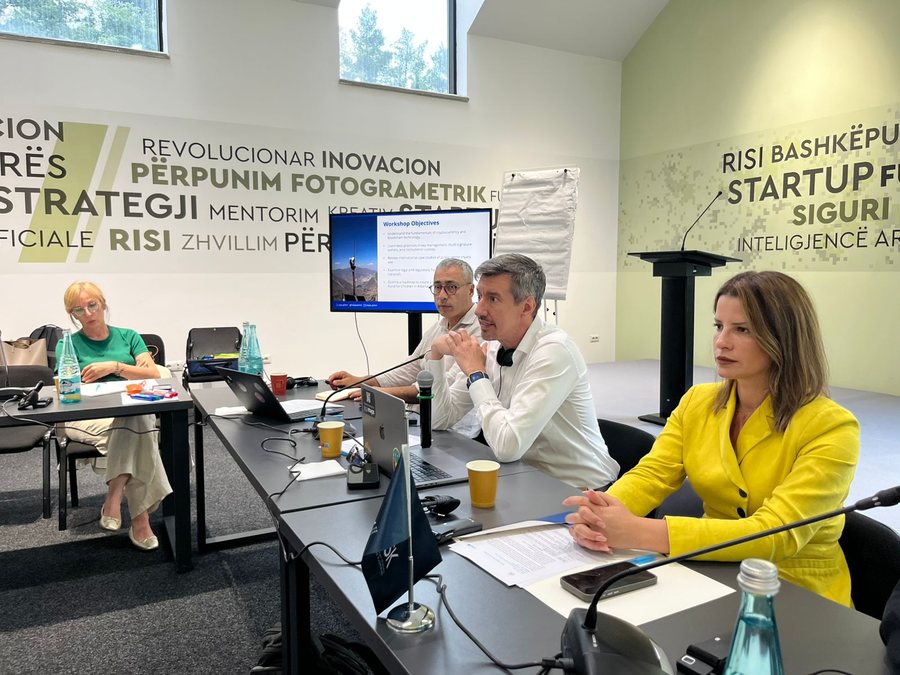
The Agency for the Administration of Sequestered and Confiscated Assets (AAPSK), in collaboration with UNICEF Albania, organized a training to build the capacities of AAPSK staff in identifying innovative solutions through the UPSHIFT Human-Centered Design model, with a special emphasis on the management of cryptocurrencies for social impact.
This initiative comes as part of an ongoing partnership between the two institutions that aims to utilize seized and confiscated assets for social purposes, especially in helping children in need. The training focused on the use of crypto in the service of social causes was attended by about 21 employees from AAPSK and other law enforcement institutions.
The opening of the event was greeted by Ms. Risena Xhaja, Chief Administrator of AAPSK, Mr. Murat Sahin, UNICEF Representative in Albania, and Mr. Christopher Fabian from GIGA - UNICEF Global Innovation Office.
This training included basic knowledge on the functioning of blockchain technology and digital wallets, as well as international best practices for using crypto funds for direct social impact. In particular, the focus was on the creation of a “Crypto Reserve Fund for Children”, a unique model that aims to turn confiscated digital assets into funds that support the well-being and rights of children in Albania.
This collaboration is part of a series of projects that AAPSK and UNICEF will continue to develop, in accordance with the respective policies of each institution:
• AAPSK focuses on the use of seized and confiscated assets for social purposes and on building a transparent and efficient model of their administration;
• UNICEF supports initiatives that directly impact children's lives, through social innovation, youth involvement, and the development of technological solutions with sustainable impact.
During the specialized session on cryptocurrencies, participants from AAPSK and other institutions had the opportunity to gain important practical and theoretical knowledge, such as:
• Technical steps for opening and managing electronic wallets, including secure storage of keys and use of USBs for secure access to digital assets;
• Understanding how to convert cryptocurrencies into fiat currencies and linking this process to state financial resources;
• Familiarity with international practices from the EU and OECD on the use of crypto funds in support of social and children's programs;
• Discussion on the model for creating a reserve fund for children with resources from confiscated cryptocurrencies, as a practice that could serve as an example for other countries.
This training marks an important step towards increasing institutional capacities to use modern assets in the service of the public good, with a special focus on children and youth. (A2 Televizion)











